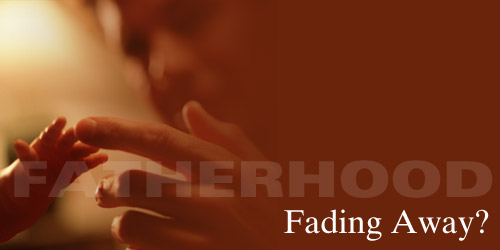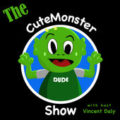 Some months ago, the N.Y. Times had a story focused on Tina Fey as reflecting a cultural mood making pregnancy a fertile field for romantic comedy. According to the story, an inviolate rule of Hollywood comedy is that once a woman in her 30’s gets her man, or can’t find him, then she has to want a baby – or cope with a baby she didn’t plan on. From “Murphy Brown” to “Knocked Up” to Ms. Fey’s latest, “Admission”, the path from romance to “momance” is clear.
Some months ago, the N.Y. Times had a story focused on Tina Fey as reflecting a cultural mood making pregnancy a fertile field for romantic comedy. According to the story, an inviolate rule of Hollywood comedy is that once a woman in her 30’s gets her man, or can’t find him, then she has to want a baby – or cope with a baby she didn’t plan on. From “Murphy Brown” to “Knocked Up” to Ms. Fey’s latest, “Admission”, the path from romance to “momance” is clear.
But where are the fathers in this cultural evolution? What has become of the father who knew best? The image reflected these days seems to be a choice between the immature jerk disconnected from the realities of parenthood, or the sperm chosen from the sperm bank. How did we go from “Kramer vs Kramer” to “Knocked Up?” There is something fundamentally off key in this picture. How and why did fathers get eliminated from this new investment in motherhood?
The odd thing about this supposed cultural reflection is that in reality, parallel to an investment in motherhood has been a growing investment in fatherhood. Not only are fathers generally, more involved with their children, more fathers than ever before have become primary caregivers while mothers work at jobs outside the home. What is striking, however, is the splitting of “parents” into either mother or father. It’s either women’s focus on becoming mothers, or men’s focus on becoming fathers as part of a role reversal in which mothers are out of the home.
What is the explanation for this cultural splitting of mothers and fathers? Part of it, no doubt, is the actual splitting of parents through divorce, although the numbers there seem to be diminishing. The huge focus on women becoming, and wanting to become mothers, is clearly related to the ticking biological clock sounding its alarm. The later age of marriage, the emphasis on career goals first, the greater acceptance of single motherhood along with the advanced technologies making that possible, have all played their part.
The cultural picture may also be drawn in part from an increased acceptance of gay couples, not only in marriage equality, but as parents either through adoption, surrogates, or in-vitro pregnancies. While reflecting the positive side of the struggle against sex discrimination, the effect has been to deemphasize the significance of male/female differences in mothering and fathering as they effect children’s development.
A major factor in shaping the cultural picture, however, has been a shift in the view of paternalism in child-rearing. A reflection both of women’s liberation struggle, and points of view derived from child development research, “father knows best” went out the window long ago. Unfortunately, the emphasis on equality and democracy in the family at times seems to have resulted in “children know best.” But equally unfortunate, has been the maternalization of child-rearing. While self-assertion and ability to take charge are lauded in the workplace, needed nurturing for children has been identified largely with feminine TLC.
It will be a real loss if the advent of unisex everything – from restrooms, to clothes, to haircuts – results in unisex parenting. Despite all efforts to prove otherwise, there are real differences between men and women that are reflected in the way they relate to children. Even infants respond differently to mothers’ and fathers’ voices. Fathers play differently with children, and often are more able to allow for their greater independence.
There has been too much of an attempt to define good fathering in terms of mothering. Interacting with children can be humanizing, which many men are discovering and appreciating as they play a larger role in child-rearing. If this leads to a greater capacity for empathy, and the ability to hear the needs of others, that is certainly all to the good. But in rejecting paternalism let’s make sure to keep the values of paternal.
Dr. Elaine Heffner, LCSW, Ed.D, is a psychotherapist and parent educator in private practice in New York City, and a Senior Lecturer of Education in Psychiatry at Weill Cornell Medical College. To learn more about the extensive work of Dr. Heffner, please visit her site Good Enough Mothering.
Read Dr. Elaine Heffner’s latest book:
 Goodenoughmothering: The Best of the Blog discusses the issues parents have raised with Dr. Elaine Heffner during her many years of professional work as a parent educator. A selection of posts from a two year period of her blog, goodenoughmothering.com, the book reflects the feelings and concerns of parents while addressing many of the criticisms leveled at them that serve to undermine their confidence. The book’s message to parents is that there is no “perfect”. Good enough is good enough.
Goodenoughmothering: The Best of the Blog discusses the issues parents have raised with Dr. Elaine Heffner during her many years of professional work as a parent educator. A selection of posts from a two year period of her blog, goodenoughmothering.com, the book reflects the feelings and concerns of parents while addressing many of the criticisms leveled at them that serve to undermine their confidence. The book’s message to parents is that there is no “perfect”. Good enough is good enough.




